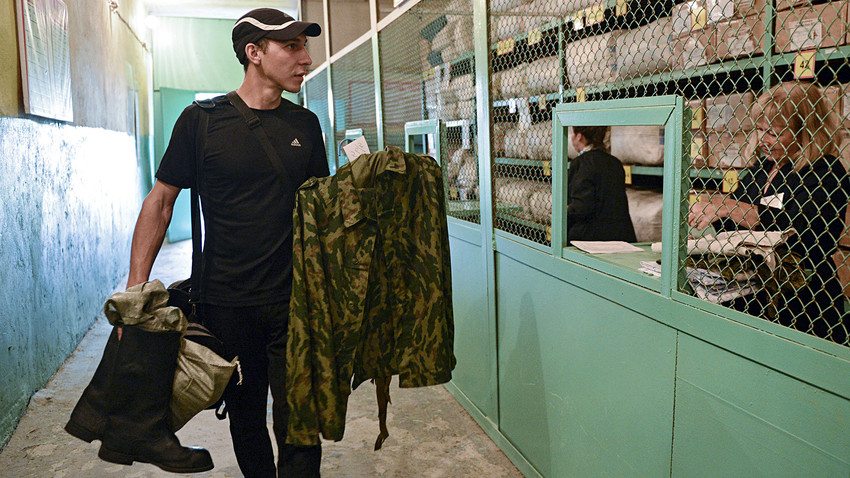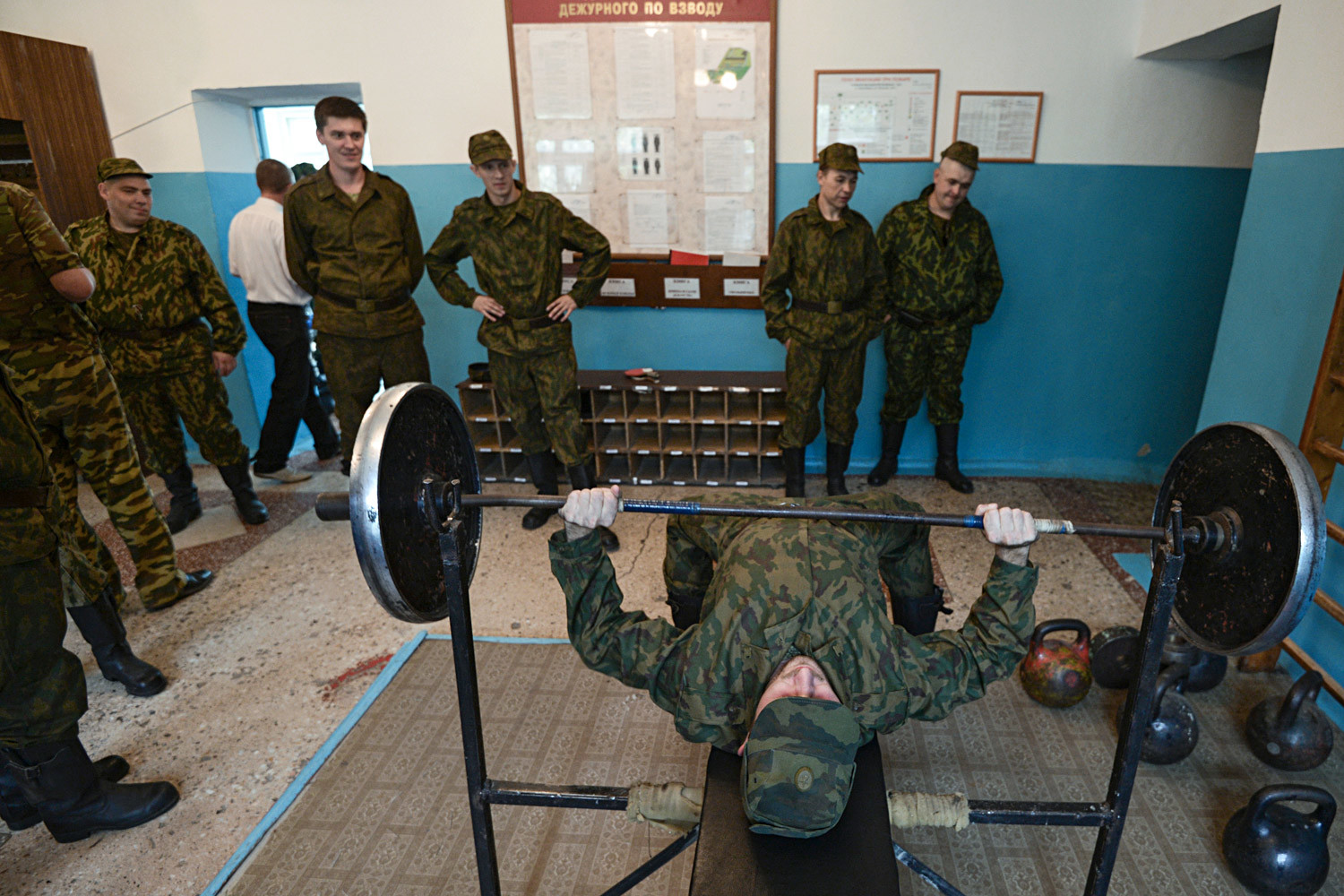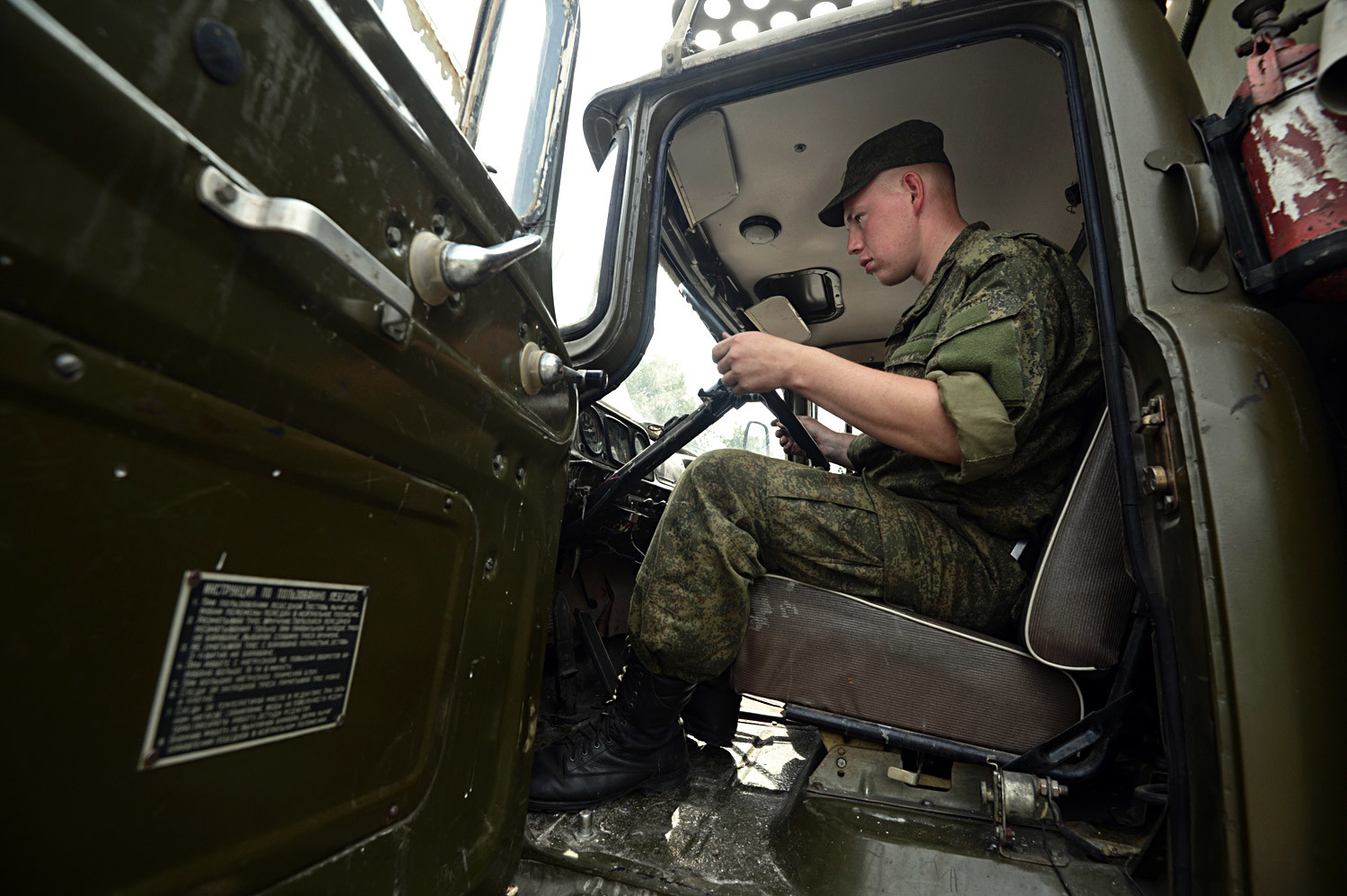Why is Russia calling up its military reserves?

A reservist summoned for training, at the personnel reception facility of a base for storing, repairing and reconstructing military equipment in the city of Novosibirsk.
Alexandr Kryazhev/SputnikOn March 19, President Vladimir Putin signed a decree stipulating a military call-up for citizens in the reserves.
“The main purpose is to refresh the skills that people forgot after finishing military service or graduating from a university military
Each year the president signs a decree for a military call-up for citizens who are capable of doing military service and are in the reserve. Thus, about 5,000 civilians are added to the army for a period of two months.
“They can be students in the final years of university that have military departments, and men with specialties and skills that the armed forces lack at the moment but greatly need for holding large-scale events. For example, during last year’s West-2017 large-scale maneuvers, besides the current servicemen, young people were called up who live near the drills,” noted the expert.
Today, the army needs programmers and people with similar computer skills. And since the army obtains a significant amount of high-tech technology, more and more highly qualified specialists are needed to work and maintain it, said Safonov.
The reserves will carry out all types of military activities along with their professional specialties. They will have to march, and go to a firing range. Some will have to learn to shoot pistols, automatic rifles, machine guns, sniper rifles; and some will just have to refine their skills.

Reservists summoned for training, in a barrack at a base for storing, repairing and reconstructing military equipment in the city of Novosibirsk
Alexandr Kryazhev/SputnikMechanics will have to service trucks and armored vehicles.
“A person has to be ready to carry out a certain task in the event of war. People with technical skills will have to drive and service tanks, armored personnel carriers
Military experts say these maneuvers are done primarily so that people do not forget how to defend their motherland.
Who can return to the army?
Any Russian citizen who is in the reserve can receive a call-up notice. Basically, this can be any man up to the age of 60.
“There haven’t been cases like this in

The driver of a truck at a military equipment storage, maintenance and repair facility in Novosibirsk. This facility will host a camp assembly of army reservists
Alexandr Kryazhev/SputnikIn his words, the servicemen in reserve who are in greatest demand, besides programmers, are specialists from the mechanized infantry, coast and missile troops, as well as engineers and communication operators. But again, the ones who are called up are those only needed
Also, people called up to do military service who were working in companies receive a daily allowance of $8-10 on top of their average monthly salary. “This is not a bad bonus for people from the Russian hinterland, where a good average monthly salary, in today’s money, is about $500. I stress that this is according to today’s exchange rate,” added Murakhovsky.
Moreover, those called up for service can obtain an additional military rank if they work for it.
“There is no criminal responsibility for refusing the call-up. Just an administrative warning or a fine of up to $10,” Murakhovsky concluded.
If using any of Russia Beyond's content, partly or in full, always provide an active hyperlink to the original material.
Subscribe
to our newsletter!
Get the week's best stories straight to your inbox